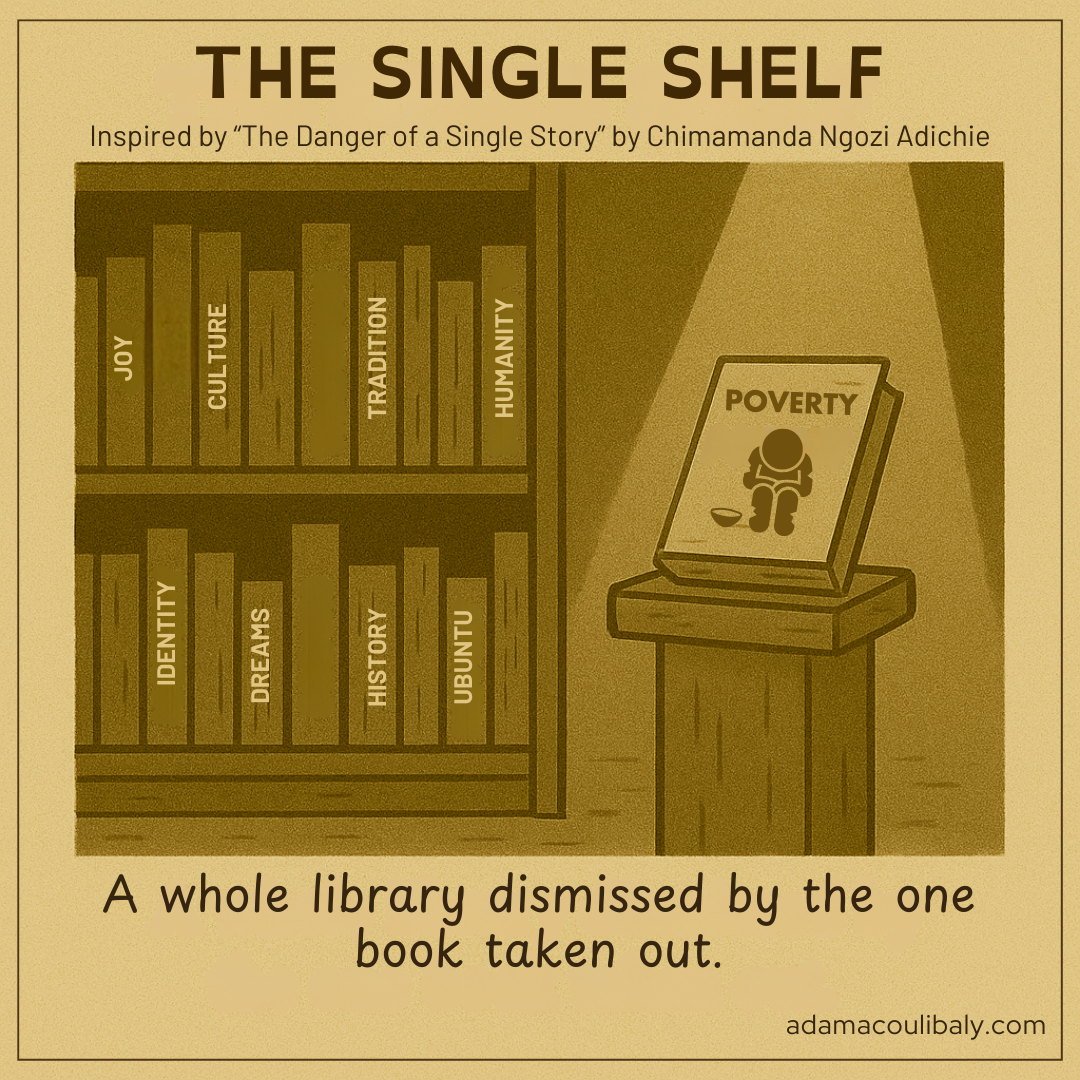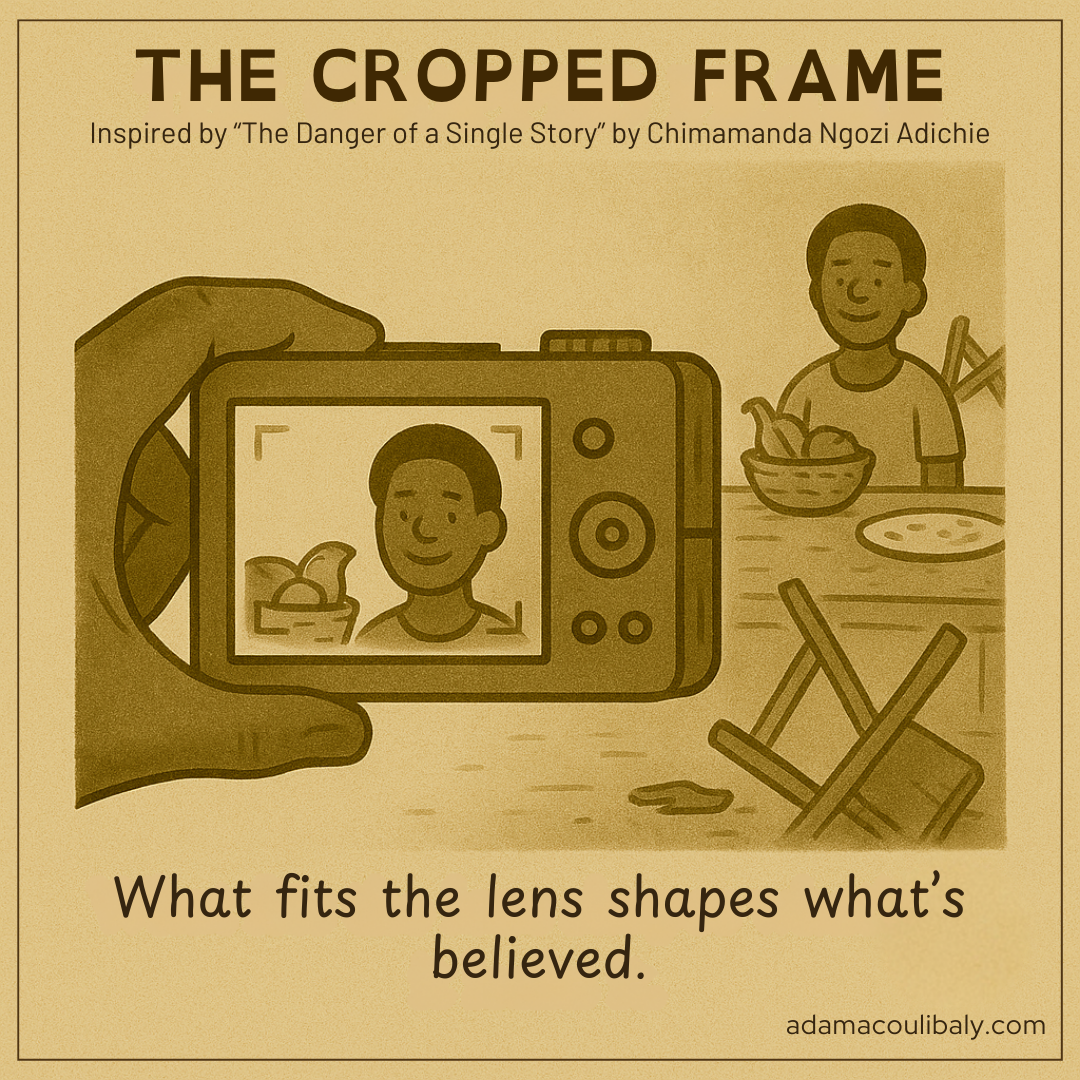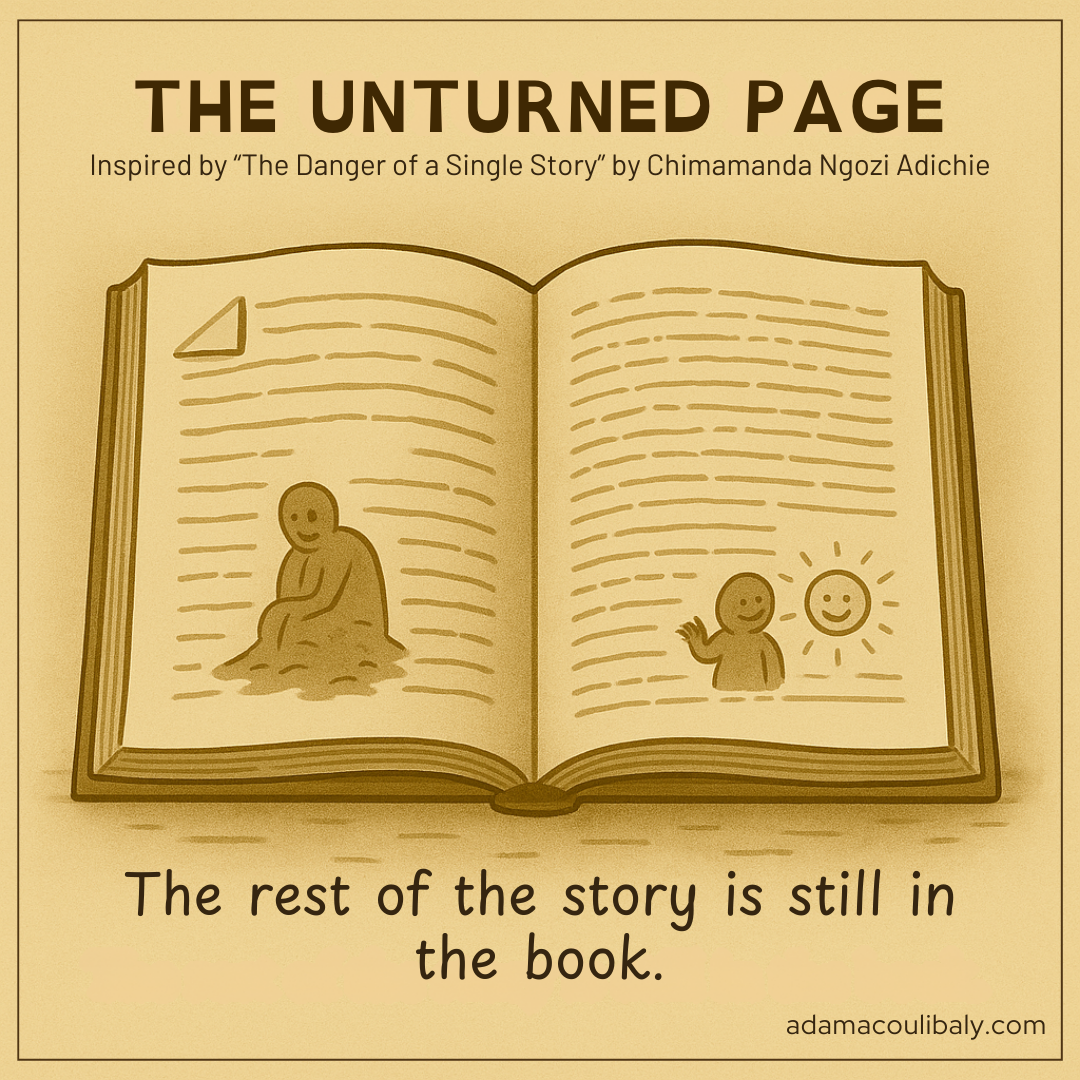The Risk of A Single Story
PositiveMinds | The Wisdom Journal | Issue 009
What we lose when a single story defines the whole
Stories shape how we see the world, and how the world sees us. However, when a story is repeated so often and told so narrowly, it begins to displace everything else. This week, Tilé invites us to look beyond the dominant narrative and question what is left out when one version becomes the only one we hear.
Using three visual metaphors, we explore how simplification can lead to erasure, how partial visibility can distort the truth and how our understanding can change when we look beyond first impressions. These are not just stories. They are lenses. When the lens is too narrow, however, we miss the full depth of human experience.
Here’s what emerged:
📚 The Single Shelf
A person is not one book. They are a library.
We often reduce people to their most visible detail. A mistake, an accent, a title or a role, for example. We take one book from their shelf and assume that it tells the whole story. But behind that one book lies a whole collection of experiences, strengths, contradictions and context. When we focus on just one aspect of someone, we not only narrow our understanding but also risk silencing the rest of their story.
This reduction happens subtly. It happens in the way stories are framed in the media. In the assumptions we make in meetings. In how we describe others when they’re not present. One aspect becomes the headline, while everything else gathers dust.
The cost is not just misrepresentation. It is the slow erosion of agency. When people are misunderstood time and time again, they stop sharing. The library closes. To prevent this, we must ask: what else is on the shelf? Which narratives have been overlooked? One loud story does not make a full collection.
🖼 The Cropped Frame
What we see is never everything there is to see.
A photograph captures a moment, but not its context. An image may show a smile or a struggle, but it cannot reveal the full experience behind it. And yet, we often accept the cropped version as the whole truth. We assume that we understand what we see, forgetting that every frame has edges.
This is how visibility becomes distortion. What is repeated becomes the standard. What falls outside the lens becomes invisible. Over time, people begin to see themselves through this narrow view, internalising stereotypes or expectations that are not their own.
To move beyond the cropped frame, we must reclaim our curiosity. We must resist the urge to summarise a person or culture at a glance. The full landscape always encompasses more than the image shows. True understanding begins when we ask what lies beyond the frame.
📖 The Unturned Page
Every story evolves as we read it.
It's easy to stop reading when the story becomes uncomfortable. We pause at the difficult chapters. We turn away from the tension. We form opinions based on the beginning and assume that we know how it will end. However, people, like stories, cannot be fully understood from just one perspective or moment in time.
This is how stigma forms. This is how judgment takes hold. We label others too quickly, missing the complexity they carry. We decide who they are before their story has had time to unfold. In doing so, we deny them the opportunity to change, surprise us, or be fully understood.
Turning the page requires patience and an open mind. It requires us to tolerate discomfort and to engage with a narrative that challenges our preconceptions. Because growth often reveals itself later. Sometimes, the part we skip is the part that explains everything.
Let the Whole Story Breathe
This week, Tilé reminded us that perspective is power. A single story can feel neat, but it often leaves too much out. The danger is not only in misreading others. It is in failing to look again.
What we see depends on what we’ve been shown. What we believe depends on how much we’re willing to question. And what we build next depends on whether we can listen beyond what is familiar.
Because a story repeated may feel complete. But only a story expanded can be true.
Read more reflections in The Wisdom Journal or explore the full Visual Wisdom collection.





